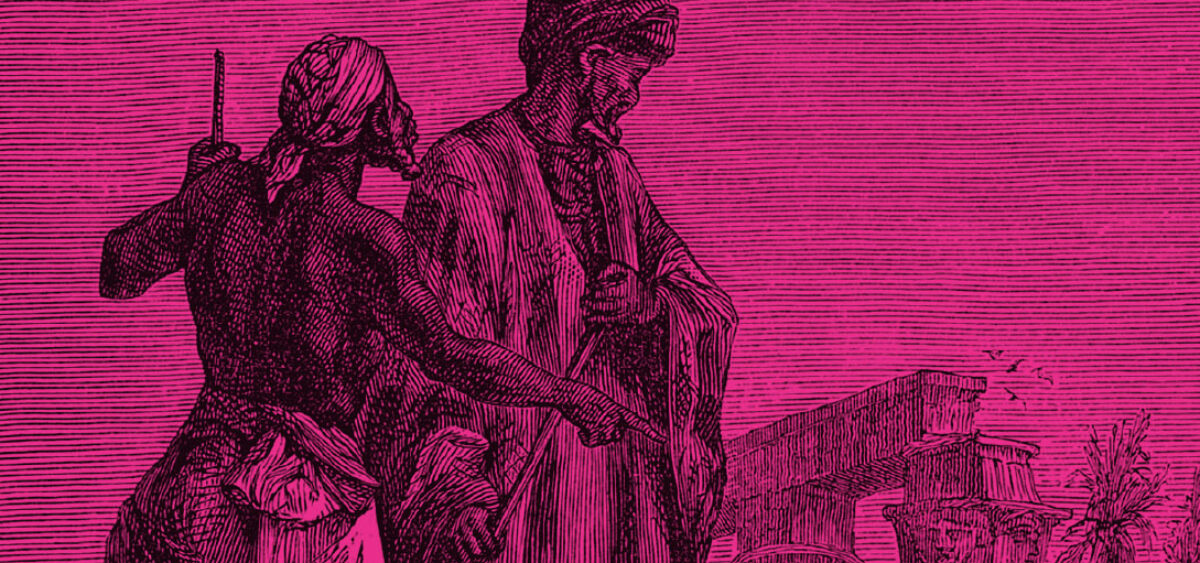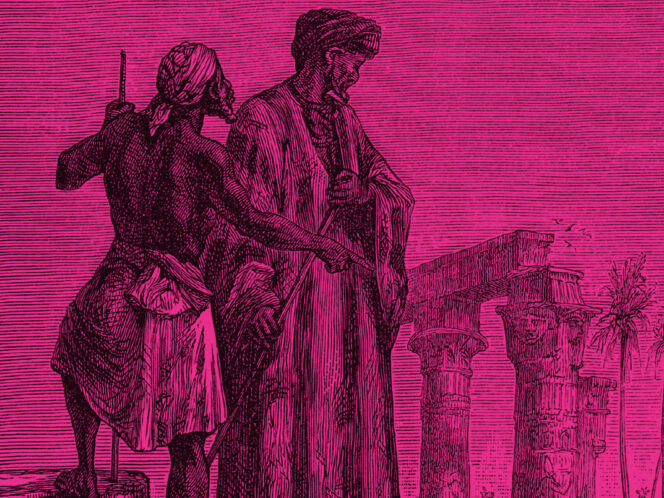
In a vote on the greatest traveller of all time, Muhammad Ibn Battuta would probably come out on top. He covered three times more distance – mostly over land – than Marco Polo, repeatedly acquiring great riches overnight, only to lose them as quickly, miraculously escaping brigands, rebels and despots.
When he left Tangiers in 1325, the 22-year-old Ibn Battuta intended to go on a pilgrimage to Mecca and Medina. The planned two-year Hajj would turn into a 30-year peregrination that, even in his lifetime, would earn him the moniker ‘the traveller of Islam’. After 700 years, we can easily extend that title and call him the greatest traveller of the pre-modern era – at least among those who left behind literary evidence. His work, A Gift to Those who Contemplate the Wonders of Cities and the Marvels of Travelling, as dictated to his secretary, describes a 117,000-kilometre route – three times further than that travelled by Marco Polo. (In English, Battuta’s work is often known as the Rihla, the Arabic word for a journey or travelogue. Quotes in this article are from the English translation: Travels in Asia and Africa 1325-1354, translated by H. A. R. Gibb (London, 1929) or The Rehla of Ibn Battuta: (India, Maldives and Ceylon) by Mahdi Husain, (Baroda, 1976)).
Migratory birds
The accounts of Battuta and Polo complement one another. Polo – a trader endowed with diplomatic talents, but no formal education – left behind a more accurate description of Far Eastern geography. The educated Battuta, who spoke Arabic and Persian (which at the time was understood even in China), had a deeper insight into the social ties of the countries he visited, mostly inhabited by fellow Muslims. His sense of ethnography also stands out: his attention is drawn as much by the realities of day-to-day life as by rituals. This great traveller became a geographer in spite of himself, and yet the huge multitude of rivers, mountains and towns found in the thousand-pages of his original work, and their locations, match up with contemporary knowledge.
As he left Tangiers, the young Moroccan probably planned to join the official Egyptian convoy heading to Mecca from Alexandria. He wasn’t wealthy. He left on a donkey, by himself. But he was well-educated in Sharia law, an asset that would pay off throughout his journey. To reach Egypt, he had to cross the sun-baked Maghreb teeming with highwaymen who preyed on travellers, and so he joined some trading convoys. This first, 10-month stage of his trip already revealed some of his personality traits. When he was struck down with fever in Ifriqiya (modern Tunisia), fearing delay, he refused to rest in town, ordered for himself to be strapped to his donkey, and continued his journey in a state of complete weakness. “If God decrees my death,






